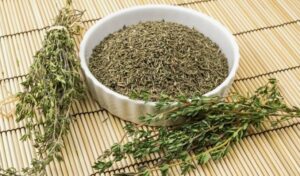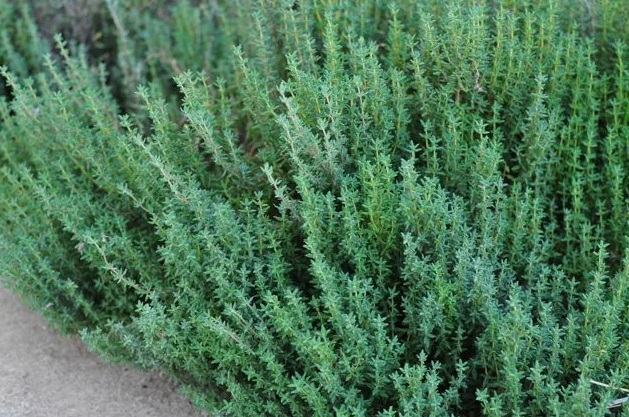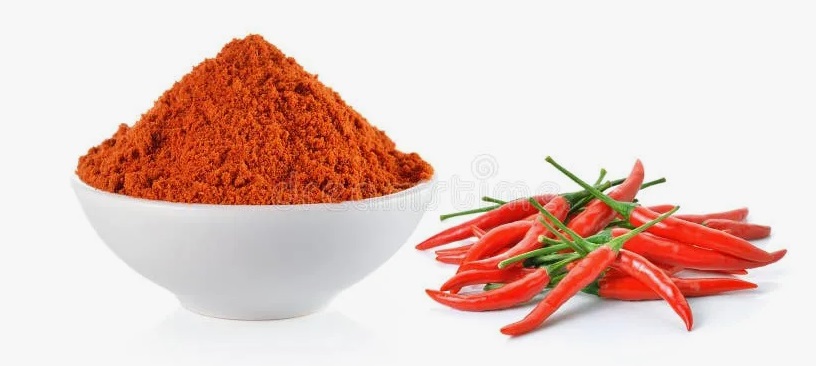What is Thyme Where Does it Grow? Benefits of Thyme, Thyme Cures
Thyme (Thymus vulgaris) is a fragrant herb known for its culinary and medicinal value. It has been used for centuries in traditional medicine, cooking, and even religious rituals. This versatile herb boasts a wealth of benefits and natural healing properties, making it a popular choice among herbal enthusiasts and natural health practitioners. In this article, we’ll dive into what thyme is, where it grows, its health benefits, the diseases it may help treat, and its potential as a natural remedy.
—
### **What is Thyme?**
Thyme is a small, perennial herb that belongs to the mint family (Lamiaceae). It has tiny green, aromatic leaves and woody stems, and it produces small pink, purple, or white flowers. With its unique earthy, slightly minty flavor and pleasant aroma, it is a staple ingredient in many dishes, especially in Mediterranean and French cuisine. It is commonly used to season soups, stews, meats, and vegetables.
Ancient civilizations, such as the Egyptians and Greeks, revered thyme for its antiseptic and medicinal properties. The Greeks believed that thyme symbolized courage and used it in incense rituals, while the Romans used it to flavor wine and purify rooms. Today, it is loved not only for its culinary versatility but also for its incredible health benefits.
—
### **Where Does Thyme Grow?**
Thyme is native to the Mediterranean region and thrives in warm, sunny weather. It grows naturally in southern Europe, North Africa, and parts of Asia but is now cultivated in various parts of the world, including the United States and Europe. Thyme thrives in well-drained soils and can flourish in gardens, pots, or even as ground cover in rock gardens.
This hardy herb is relatively easy to grow and tolerates drought, making it a popular addition to herb gardens. It can even adapt to less-than-ideal conditions, provided it gets plenty of sunlight.
—
### **What Are the Benefits of Thyme?**
Thyme is packed with vitamins, antioxidants, and essential oils, which make it a powerful herb for promoting health and well-being. Here are some of its key benefits:
1. **Rich in Nutrients**: Thyme contains important vitamins like vitamin C, vitamin A, and vitamin K, as well as minerals such as iron, manganese, and calcium. These nutrients support immune function, strong bones, and good overall health.
2. **Strong Antioxidant Properties**: Thyme is full of antioxidants, including thymol and carvacrol, which help combat free radicals and reduce oxidative stress. This may lower the risk of chronic diseases like cancer and heart disease.
3. **Boosts Immune Function**: Thyme has natural antimicrobial and antiviral properties, making it a great herb for fighting off infections. Its high vitamin C content also supports immune health.
4. **Improves Respiratory Health**: Thyme has traditionally been used to treat respiratory conditions, thanks to its ability to loosen mucus and promote easier breathing. It can help with colds, bronchitis, and asthma.
5. **Supports Digestion**: Thyme aids in digestion by stimulating the production of digestive enzymes. It can ease bloating, gas, and indigestion.
6. **Promotes Skin Health**: The antimicrobial and anti-inflammatory properties of thyme make it a natural treatment for acne and other skin conditions. It also helps in wound healing and reducing infections.
7. **Reduces Stress and Anxiety**: The herb’s essential oil may have calming effects on the mind and body. Thyme tea is often used as a natural remedy to promote relaxation and reduce anxiety.
8. **Heart Health**: Thyme may help lower blood pressure, lower cholesterol levels, and improve blood circulation, contributing to cardiovascular health.
## The Versatile Thyme: Culinary Uses and Health Benefits
Thyme, an aromatic herb belonging to the mint family, has graced kitchens and medicine cabinets for centuries. Its distinctive earthy flavor profile and potent medicinal properties make it a valuable asset in both culinary and therapeutic contexts.

Culinary Applications:
Thyme’s versatility shines through its adaptability to various cuisines and dishes. Its slightly lemony, minty notes complement a wide range of flavors, making it a popular choice for savory dishes. Some notable applications include:
* Soups and Stews: Thyme elevates the depth of flavor in hearty soups and stews, particularly those featuring poultry, beef, or vegetables.
* Roasted Meats and Vegetables: Its robust flavor stands up well to roasting, enhancing the taste of chicken, lamb, potatoes, carrots, and other root vegetables.
* Sauces and Marinades: Thyme infuses sauces with a savory complexity, while its presence in marinades adds depth and tenderness to meat.
* Stuffings and Dressings: Its earthy notes contribute a unique dimension to both bread-based stuffings and vinaigrette dressings.
Health Benefits & Cold/Flu Remedies:
Beyond its culinary uses, thyme boasts a long history of medicinal application. Rich in antioxidants and antimicrobial compounds, it offers several potential health benefits:
* Respiratory Support: Thyme’s volatile oils possess expectorant properties, helping to loosen mucus and relieve coughs associated with colds and bronchitis.
* Antibacterial Action: Its inherent antibacterial properties have traditionally been used to combat infections and soothe sore throats.
* Digestive Aid: Thyme can aid digestion by stimulating appetite and relieving bloating.
Traditional cold and flu remedies often feature thyme in the following ways:
* Thyme Tea: Steep fresh or dried thyme leaves in hot water for a soothing and decongestant beverage.
* Steam Inhalation: Adding thyme essential oil to a bowl of steaming water and inhaling the vapors can help clear nasal congestion.
* Poultices: Applying a warm compress infused with thyme can alleviate chest congestion and muscle aches.
Note: While generally safe, individuals with allergies or specific health conditions should consult their physician before using thyme medicinally.
Thyme’s unique flavor profile and impressive health benefits make it an invaluable addition to any kitchen pantry. Its versatility allows for creative culinary exploration while its medicinal properties provide natural support for overall well-being.
—
### **What Diseases Can Thyme Treat?**
Thyme has been traditionally used as a natural remedy for various ailments, and modern research supports its potential in addressing many health conditions. Here are some of the diseases thyme may help treat or alleviate:
– **Colds and Flu**: Thyme’s antimicrobial and antiviral properties make it an effective remedy for combating cold and flu symptoms. Drinking thyme tea or inhaling thyme-infused steam can relieve sore throat, cough, and congestion.
– **Respiratory Disorders**: Conditions like bronchitis, asthma, and sinusitis may benefit from thyme’s ability to clear mucus and reduce inflammation in the airways.
– **Digestive Issues**: Thyme can soothe digestive discomfort, alleviate bloating, and treat stomach infections caused by harmful bacteria.
– **Infections**: Thanks to its antibacterial and antifungal properties, thyme can be helpful in treating skin infections, athlete’s foot, and oral infections like gum disease.
– **High Blood Pressure**: Some studies suggest that thyme extract can lower blood pressure by relaxing blood vessels and reducing strain on the heart.
– **Acne and Skin Conditions**: Thyme’s natural antiseptic properties make it an effective remedy for acne and other skin irritations.
– **Cognitive Decline**: Preliminary research indicates that thyme may have neuroprotective properties, potentially helping with conditions like Alzheimer’s disease or memory loss.
—
### **Thyme Cures and How to Use It**
Thyme can be used in various forms to address different health concerns. Below are some common thyme remedies and their uses:
1. **Thyme Tea**:
– Add 1-2 teaspoons of dried thyme leaves or a few sprigs of fresh thyme to a cup of boiling water.
– Let it steep for 5-10 minutes, then strain and enjoy.
– Thyme tea is excellent for soothing sore throats, improving digestion, and boosting immunity.
2. **Thyme Essential Oil**:
– Thyme essential oil can be inhaled in a diffuser to relieve stress, enhance respiratory health, and support focus.
– Dilute thyme oil with a carrier oil before applying it to the skin to treat acne or fungal infections.
3. **Thyme Steam Inhalation**:
– Add a handful of fresh thyme or a few drops of thyme essential oil to a bowl of hot water.
– Cover your head with a towel and inhale the steam to clear nasal passages, loosen mucus, and relieve congestion.
4. **Thyme Gargle**:
– Make a thyme infusion and mix it with warm water to create a gargle solution. This can soothe a sore throat and kill bacteria in the mouth.
5. **Thyme Infused Oil**:
– Fresh thyme can be infused in olive oil and used as a topical remedy for skin conditions or as an immune-boosting salad dressing.
—
### **Conclusion**
Thyme is truly a powerhouse herb with a wide array of health benefits. From its culinary uses to its potential as a natural remedy for colds, respiratory conditions, digestive issues, and more, thyme has earned its spot as a cherished herb in households across the globe. Its long history in traditional medicine, combined with modern scientific research, highlights its value in promoting health and well-being. Whether you’re sipping on a warm cup of thyme tea or using it as a topical treatment, this humble herb deserves a spot in your wellness routine. **What is Thyme, Where Does it Grow? | Benefits of Thyme | Diseases Thyme May Help Treat | Thyme Cures**
Thyme (Thymus vulgaris) is a fragrant herb known for its culinary and medicinal value. It has been used for centuries in traditional medicine, cooking, and even religious rituals. This versatile herb boasts a wealth of benefits and natural healing properties, making it a popular choice among herbal enthusiasts and natural health practitioners. In this article, we’ll dive into what thyme is, where it grows, its health benefits, the diseases it may help treat, and its potential as a natural remedy.






